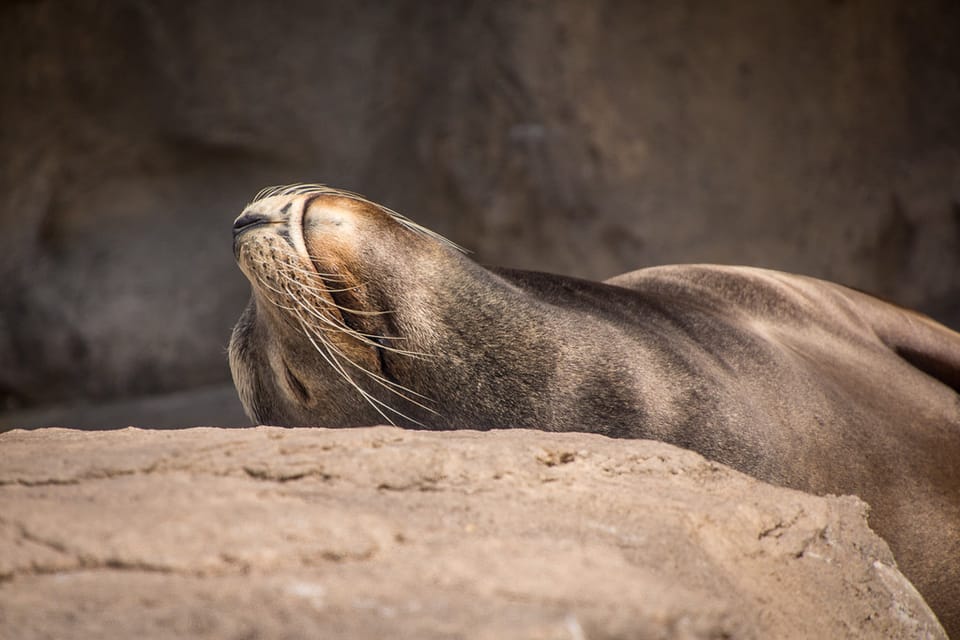EcoWest News, January 14, 2025

Welcome to EcoWest News, a weekly round-up of news and resources that you can put to use in addressing environmental issues and protecting the wild in your community.
Across the West
Logging and development of Lemay Forest is opposed by residents seeking to protect one of Winnipeg’s few intact riparian forests. [CBC, Save Lemay Forest]
Fisheries and Oceans Canada is hosting a virtual information session on Feb. 18 to raise awareness about aquatic species at risk in Saskatchewan. For further information, contact Regina Sobowale at regina.sobowale at dfo-mpo.gc.ca and Olga Francisco olga.francisco at prairiescientific.ca. The species of fish to be discussed include Bigmouth Buffalo (special concern), Lake Sturgeon (endangered), Mountain (Plains) Sucker (threatened), Plains Minnow (threatened), and Brassy Minnow (special concern).
The Alberta government is welcoming back coal mines and proposing to double oil production by increasing pipeline capacity to the US. [The Narwhal]
Across Canada
The Province of Ontario has introduced a suite of energy-efficiency programs designed to save both money and energy, including heat pumps, insulation, window sealing, smart thermostats, and rooftop solar and battery storage. [Clean Energy Canada]
Around the World
An AI-driven system generates 3-D models of urban trees, simulating realistic tree growth and predicting how urban forests will change over time. By mapping shade patterns and envisioning future green spaces, it can also assist planners in addressing urban heat build-up. [Planetizen]
Making a Difference
Congestion pricing designed to limit vehicle traffic in large urban centres may not be popular, but it promises cleaner air (resulting in fewer health problems), safer streets, and improved public transit. [Grist]
Paying people to save energy is more cost-effective than continuing to rely on gas-fired plants. Homes and businesses can boost grid stability by shifting or reducing electricity use at peak times, pre-cooling with smart thermostats, or upgrading insulation. [National Observer]
DIY
The Library of Things Toolkit is designed to help people plan, start, and grow Libraries of Things in their community. It covers everything from building an inventory to budgeting, going mobile, and marketing. [Shareable]
Walks about Nothing have no agenda or leader, providing community members and civic leaders with a chance to experience the community together on foot and share ideas and information. [Strong Towns]
Biodiversity
Studying Greenland’s peregrine falcons involves abseiling down cliffs, enduring summer snowstorms, and enlisting your kids as field assistants. “Written in the peregrine’s graceful flight is a story worth recalling: the possibility of redemption, the promise that the rarest of the rare may once again become blessedly common—if we care enough to act quickly.” [bioGraphic]
A team of grasshopper-rearing volunteers has not only reintroduced a lost grasshopper, it “has ensured that the UK’s largest native grasshopper has a firm place in the hearts of the local residents in the species’ reclaimed home.” [Ecological Citizen]
A recent study on biomass decline involved killing millions of insects: “I cannot see how the harming or killing of the subjects of study can be considered morally justifiable in any value system other than one strongly skewed towards anthropocentrism.” [Ecological Citizen]
Flies are pollinators, scavengers, herbivores, decomposers, parasites, and more. Chris Helzer says, “if flies disappeared from the earth, it would be a huge problem” and goes on to describe some of the predatory flies he’s observed on the prairies. [Prairie Ecologist]
Nature’s Wonders
Sea sponges can’t leave their spot on the ocean floor, but that doesn’t mean they’re inactive. They bob and twitch, receive visitors, protect themselves from threats, and alter their shape and colour to adapt to environmental changes. They even sneeze. [CBC]
Photo credit: https://www.flickr.com/photos/apmckinlay/26858968314
EcoFriendly West informs and encourages initiatives that support Western Canada’s natural environment through its online publication and the Nature Companion website/app. Like us on Facebook, follow us on BlueSky, X, and Mastodon, or subscribe by email.

Member discussion